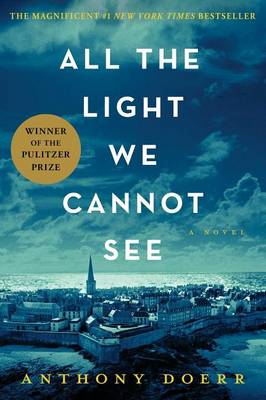Reviewed by ibeforem on
The first main perspective is that of Marie-Laure, a young French girl who goes blind before the war and then must flee Paris with her father when she is 12. They land in Saint-Malo, a walled city near the sea, with her father's agoraphobic uncle and his housekeeper, where they are eventually under siege by the Germans anyway. Being blind in a strange place during wartime must have been terrifying, and I think the book portrayed that well.
The other main perspective is that of Werner Pfennig, a young boy living in an orphanage in a German mining town with his younger sister, who soon finds that his talent with radios will save him from the danger of working in the mines but send him straight into the danger of war.
It is obvious early on that these two characters are going to cross paths, but it wasn't in the way that I expected. Nor did the characters have endings that I expected. Thankfully, the story does take us through to the end of their lives so we aren't left wondering.
The one part I didn't really enjoy was the perspective of the German officer who is hunting for "treasures" for Hitler. His perspective was distasteful, almost in a cartoonish way -- here's the big bad nasty Nazi! I honestly could have done without many of his parts. I also had problems with the time/place jumping, and sometimes had to look back to remind myself of where I was in time and space.
I did think this was a very good read, but not my favorite of the past year. But if you like World War II fiction, this should absolutely be on your list.
Reading updates
- Started reading
- 5 April, 2019: Finished reading
- 5 April, 2019: Reviewed
